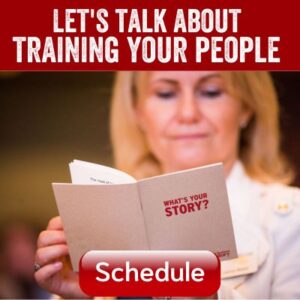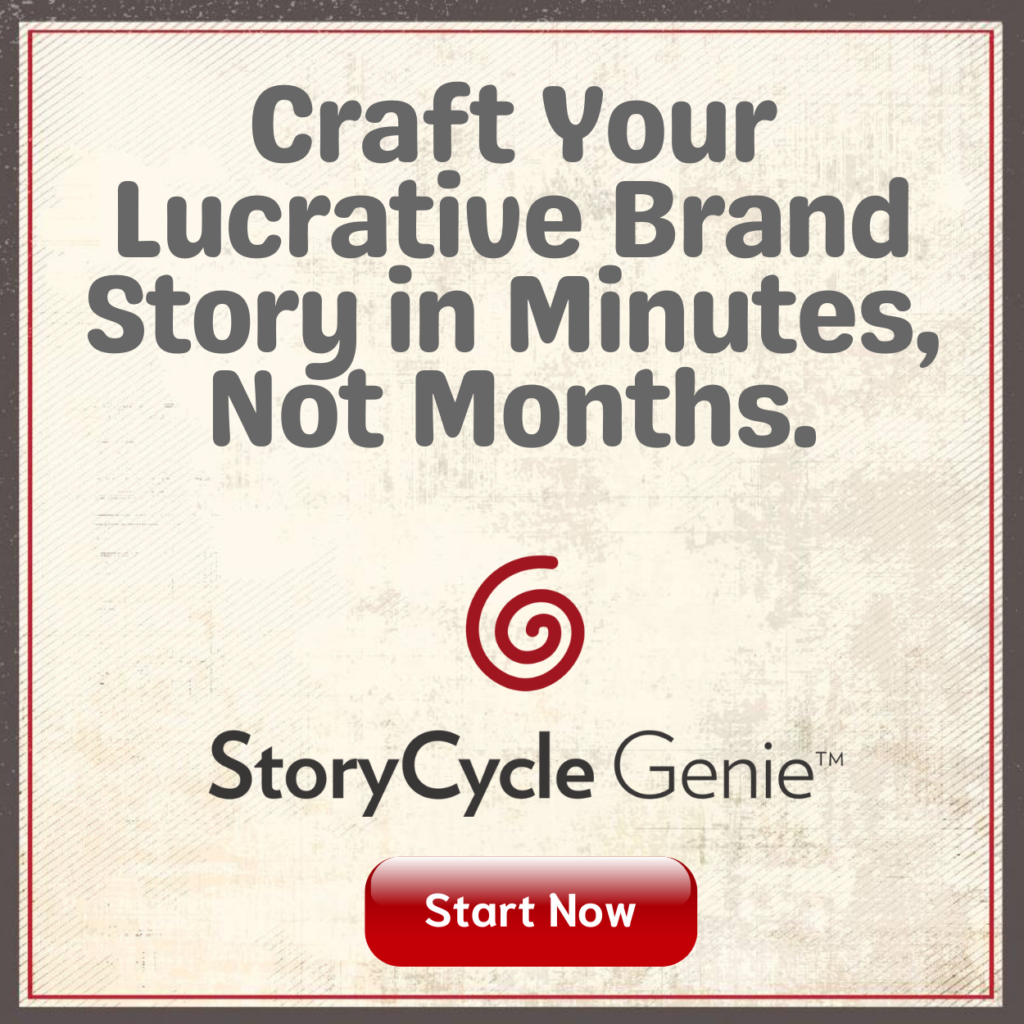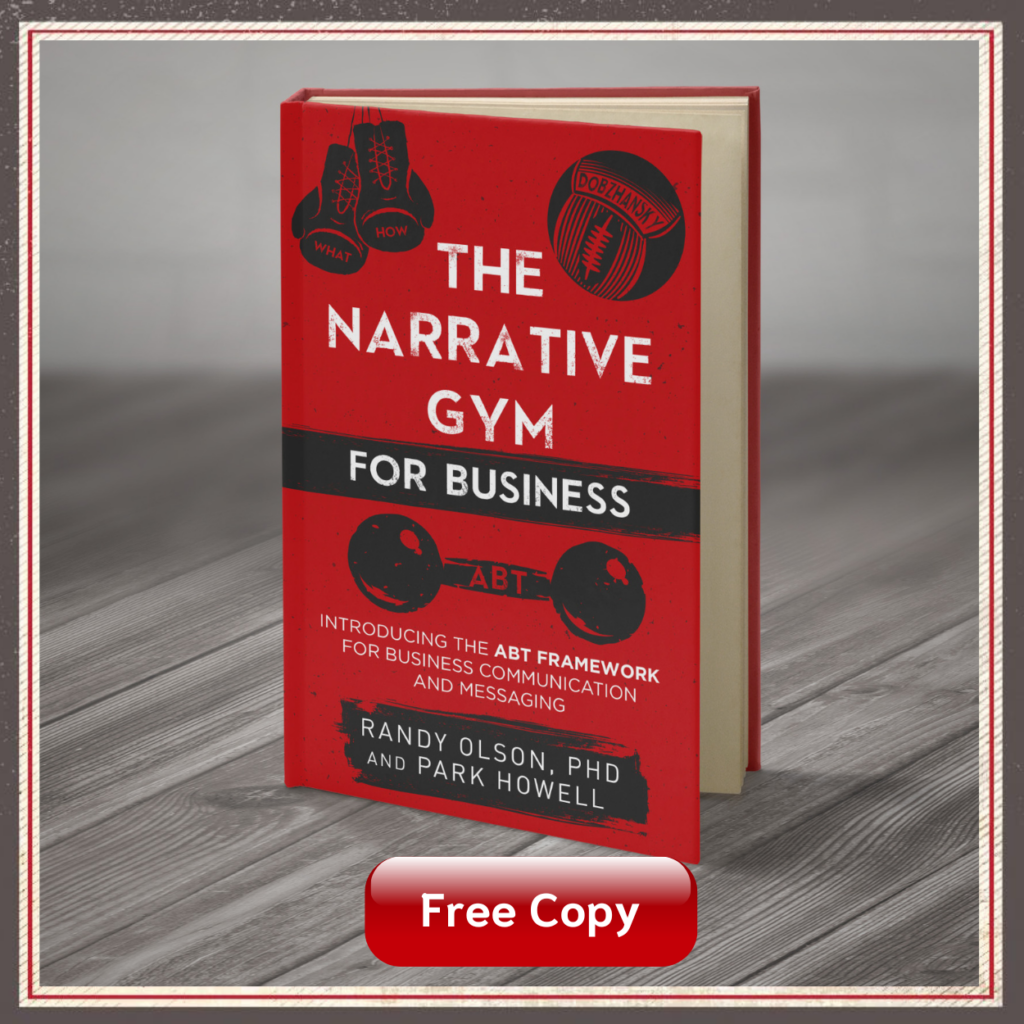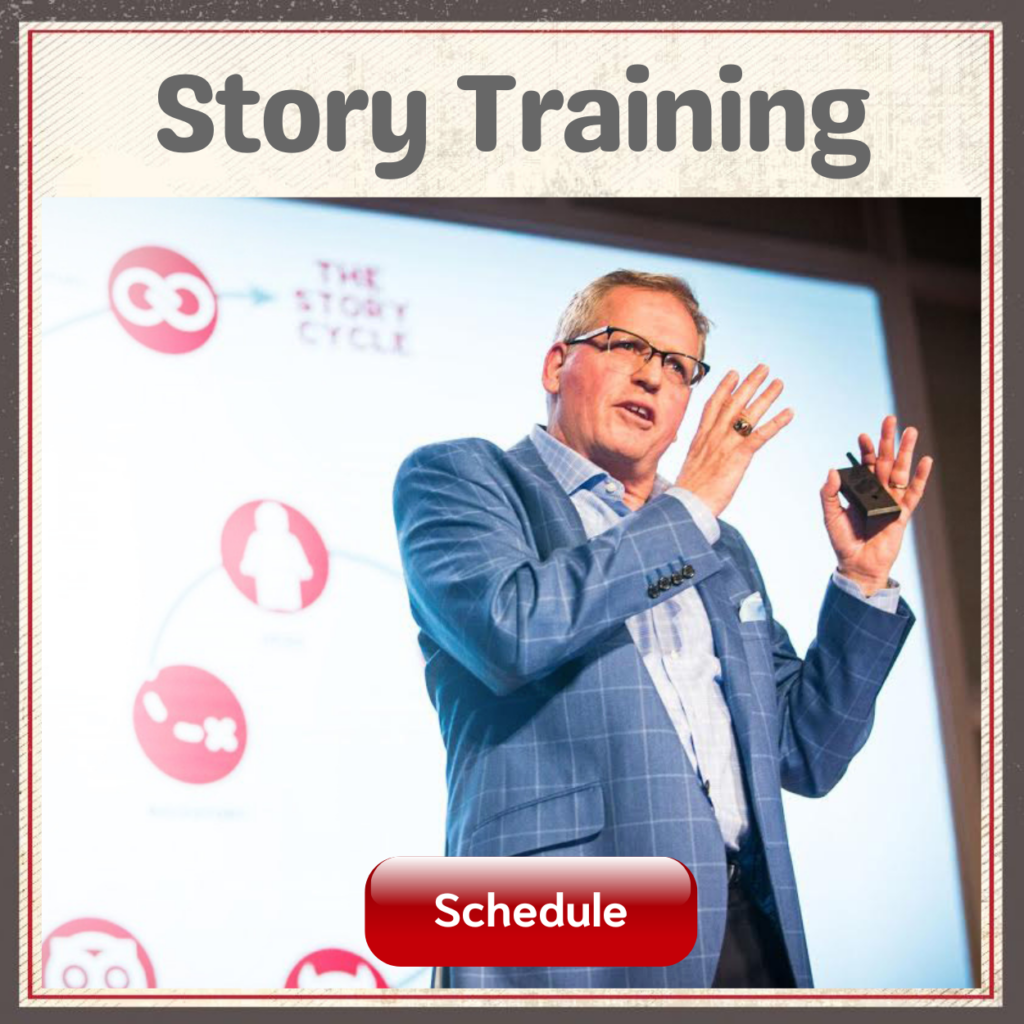The Generosity-Driven Storytelling Strategy for Small Business Growth With John Whitt
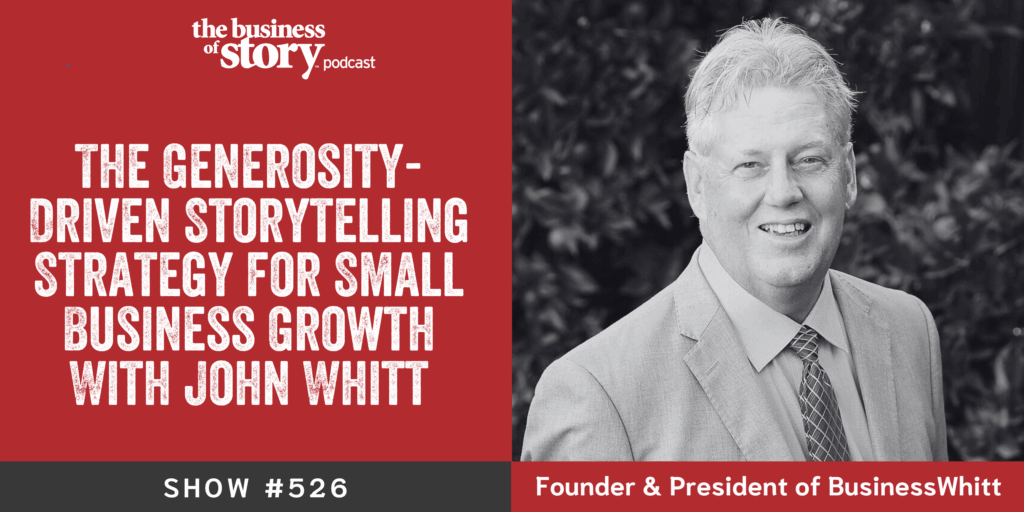
Strategic Chess Meets Heart-Centered Leadership: Why Small Business Owners Are Hitting Growth Ceilings (And How to Break Through)
You’ve built a successful small business. You’re doing everything right. And you know there’s so much more potential waiting to be unleashed.
But you’re hitting that familiar ceiling between $500K and $5M.
More effort isn’t translating to proportional growth, because you’re trapped managing everything instead of leading strategically.
Imagine accelerating your growth by learning how chess-inspired strategy, combined with generosity-driven leadership, creates the systematic breakthrough that transforms overwhelmed business owners into confident, scalable leaders.
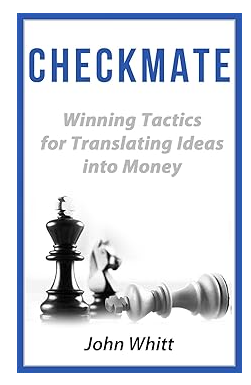
John Whitt, Founder & President of BusinessWhitt and author of Checkmate: Winning Tactics for Translating Ideas into Money, is not your typical business coach.
He’s a “heart-centered tactician” who combines 30 years of corporate experience managing billion-dollar construction projects with chess strategy principles and a generosity-first leadership philosophy.
From managing 1,500 Bank of America projects worth $500 million to helping small business owners break through growth constraints, John’s proven that strategic thinking plus authentic values creates an unstoppable competitive advantage.
What You’ll Discover in This Game-Changing Episode:
The Chess Strategy Framework That Scales Businesses
John reveals his five-step “Checkmate” methodology that turns chaos into systematic growth:
- Clarity: Everything starts here (just like chess openings)
- Team: No one succeeds alone – learn to leverage talent effectively
- Testing: Validate before you scale (the secret most businesses skip)
- Planning: Strategic execution that actually works
- Change: Adaptation strategies that keep you ahead of market shifts
Why Generosity Creates Premium Market Position
Discover how leading with generosity isn’t just nice – it’s smart business that creates customer retention, employee loyalty, and premium pricing that competitors can’t replicate.
Real-World Systems from Billion-Dollar Project Management
John shares battle-tested insights from managing massive construction projects and how those same principles solve small business bottlenecks.
Breaking the $500K-$5M Growth Ceiling
Learn why 95% of small businesses get stuck at this exact revenue range and the specific constraints John helps clients overcome.
Faith-Integrated Business Leadership
How values-driven entrepreneurs can compete effectively while maintaining integrity and creating meaningful impact.
Why This Episode Will Transform Your Thinking
John’s approach proves that business isn’t just about profit – it’s about creating sustainable competitive advantage through authentic leadership. Whether you’re struggling with team management, marketing challenges, or strategic planning, his frameworks provide clear pathways from vision to execution.
I ran his brand through the StoryCycle Genie™, and John said, “I don’t know how you got that in five minutes, but it was spot-on!”
The Genie identified John’s unique value position perfectly: “The only strategic business coaching firm that combines proven growth methodologies with generosity-first leadership principles.”
After listening to this conversation, you’ll understand exactly why that combination is so powerful.
What’s In It For You:
- Leading with generosity builds trust, loyalty, and long-term business success.
- Chess teaches strategic thinking, resource allocation, and adaptability—skills every business owner needs.
- Most small businesses struggle not with vision but with executing marketing and team leadership effectively.
- John’s five-step framework—Clarity, Team, Testing, Planning, and Change—guides businesses from idea to scalable execution.
- Aligning business with personal values and faith creates deeper impact and a more premium, purpose-driven brand.
Chapters:
- 00:00 Welcome to the Business of Story
- 02:12 Chess Background and Its Influence
- 11:29 From Chess to Business Strategy
- 20:37 Generosity-Driven Leadership
- 30:20 Mindset for Success
- 36:26 Faith-Integrated Business Leadership
- 42:16 Conclusion and Resources
Links:
- BusinessWhitt.com
- John Whitt on LinkedIn
- John on Instagram
- John on Facebook
- 3 Revenue-Killing Mistakes Business Owners Make—and How to Fix Them Now
- StoryCycle Genie™
- Vibe Branding Changes Everything: From Car Metaphors to AI-Powered Business Intelligence
Popular Related Episodes You’ll Love:
- The Human Story in AI-Driven Sales with Gaurav Bhattacharya
- How to Catch Your Stories With Aaron Calafato
- Where to Find The Right Audiences for Your Brand Stories With Rand Fishkin
Your Storytelling Resources:
Connect with me:
- Instagram: https://www.instagram.com/parkhowell/
- Facebook: https://www.facebook.com/groups/BusinessOfStory
- YouTube: https://www.youtube.com/channel/UC0ssjBuBiQjG9PHRgq4Fu6A
- Twitter: https://twitter.com/ParkHowell
- LinkedIn: https://www.linkedin.com/in/parkhowell/
- Website: https://businessofstory.com/abt/
Transcript of Show:
John: White Transcription:
Park Howell:
Well, good morning, John:. Welcome to the Business of Story. And I know you’re coming to us from Vancouver, Washington, which of course I grew up in the Seattle area, north end of Seattle up off the Windmill area. So I’m always delighted to speak with fellow Pacific Northwesterners.
John Whitt:
Good morning, Park:. Thanks for having me on the show.
John:
Yeah, the Northwest, the land of forests and streams and rivers and waterfalls. Yeah, so I’ve been here five years. And the rain is the hardest part, right? So I’m from Southern California. There is no hibernation cycle in Southern California because it’s sunny all the time.
Park:
And rain, and that’s why I ended up in Arizona.
John:
There is a hibernation cycle in the Northwest. When you’re only getting eight hours a day of sunlight, it’s the time where you feel okay to hang out inside and get your work done, and you don’t have to go outside and do all kinds of things. And then when summer comes, it’s spring-summer, it’s glorious.
Park:
Well, we grew up, my six siblings and I, on what my parents called the Happy H, a little 12-acre ranchette out in the Woodville area. And we just never knew anything different than go outside in the rain. My mom would always say, when we were roughhousing in the house and driving her crazy, “Get your things on and go outside.” And we’d be like, “But it’s 34 degrees and raining, mom.” She goes, “Get them on and get out of here.”
It wasn’t until we started going over to Eastern Washington—decidedly more dry, arid, and warm—to see my grandparents in Wenatchee, where there was sun and warmth just two and a half hours away. I thought, why don’t we live here? That opened my eyes.
John:
Well, from Vancouver, you just have to get on the other side of the Cascades. Same thing happens, right? You go an hour and a half east and you’re in the upper desert with lots of sun. The clouds get trapped up against the Cascade Mountains and they stay right on top of Portland. That’s why it’s wet and rainy for so long.
Park:
Yeah.
John:
It’s taken me time to learn how to adapt. This year was better than any other. I moved from Southern California in 2020. That year was tough for a lot of people—the pandemic, a divorce, heart surgery. I needed a change, had a lot of family up here, sold everything else, packed up my car, and moved to the Northwest.
Park:
Well, glad you did. And I’m glad you’re here with us today. What caught me was that I probably get 20 to 30 requests to be on the podcast every week, and I turn most of them down because they aren’t applicable to my audience. But yours was interesting. You’ve got this chess background—maybe not a chess master—but you’re using that in corporate training and leadership. Could you give us a little of your background?
John:
Sure. Never reached chess master, but I was a high A player, just below expert level. This was in high school. My dad taught me, and I got trounced at first, but I started studying.
Our team advisor brought in Ken Commons, an international master, and he gave us four things to focus on. Two months later, I started winning tournaments.
I had a paper route, saved money, and bought a bus ticket to San Jose for the Palmasan Championships. It was 1976. I went 5-0 and won $1,000. I bought a plane ticket home because I didn’t want to ride that bus again. That led to an invite to the U.S. Chess Championships in Philly. I did well, and it was a defining moment.
What I learned later was that the strategic thinking from chess—strategy, tactics, execution—has shaped how I operate in business ever since. Many small businesses have a vision, but they lack that bridge from strategy to execution. They either don’t know how to translate their plan into action or they’re stuck between the big-picture thinkers and the doers.
Park:
Yeah, and when I got your request, I couldn’t find your bio because it got stuck in spam. So I ran your brand through the StoryCycle Genie to get intel. Within minutes, I had a brand narrative and a solid overview of who you are.
Your audience, according to the Genie: growth-constrained business owners struggling to scale while maintaining quality. Fears: losing control of culture. Frustrations: trapped by success, no time freedom. Aspirations: build a scalable business that runs without constant oversight. Sound accurate?
John:
Yeah, absolutely. That StoryCycle Genie is really good. You just described about 95% of small business owners. They build a team, get some consistency, and then hit a ceiling. Implementing systems and scaling up is where they need help. That’s where I come in—to take the vision and build a strategic plan that leads to execution.
Park:
And 95% of North American businesses are small, meaning under $10 million in annual revenue. You’re focusing on those doing between $500k and $5M, helping them break that ceiling.
Do you find most of your clients are strong in either strategy, tactics, or execution—but rarely all three?
John:
Yes. They’re usually good at managing themselves. They can strategize and execute, but they struggle with tactics—especially marketing—and with managing a team.
They hire someone, tell them what to do, and expect results. But that leads to bottlenecks. They need team members who can take ownership, make decisions, and grow with the company.
Here is the next part of the cleaned transcript:
Park:
So is your brain so steeped in chess growing up as a young man and having it just embedded in what you do that you quite often reach back to, I don’t know if it be chess moves or opening moves or anything like that that help inform how you guide your customers?
John:
Well, yeah. Here’s the thing. In chess, the goal is to capture the king. It’s the same goal every game. You have your pieces, and your opponent has his. The more effectively you allocate your pieces, the more likely you are to win.
You need a deep understanding of the pieces, their roles, and how they exert pressure and force. Same thing in business. Your resources are your pieces.
The goal isn’t always to capture the king—you get to set the goal in business. But your resources—yourself, your team, your cash—have to be allocated and directed toward that goal.
Park:
Well, you’ve got the chess background. Tell us about your business background. Have you been successful in applying this approach to other companies?
John:
I started in corporate. Spent 30 years in multi-billion-dollar companies. My last client was Bank of America while working at CB Richard Ellis.
I was the Western Regional Construction Manager. We started with one project in 1996, and in two years, we had 1,500 projects and about $500 million in work.
At that scale, every detail matters. Mistakes multiply fast.
By 2010, I was ready to move on. The Great Recession hit. My team moved to Dallas, but I was in SoCal with my kids and didn’t want to move.
So I launched my own practice and started working with small business owners. I bought a coaching franchise to learn how to be a real coach—how to ask questions, find clients, provide value.
Since then, I’ve worked with companies from one-man bands to 250-employee operations. The problems vary slightly by size, but it all comes down to identifying resources and resolving constraints.
Small company? Maybe you need a marketing plan and don’t know how to build one. Bigger company? You may already have plans but face regional or operational issues.
Either way, the framework applies: clarity, team, testing, planning, and change management.
Park:
Well, you and I are playing in the same arena. With the StoryCycle Genie, it’s about democratizing world-class branding. Small business owners are overwhelmed, don’t know where to start, and can’t afford ad agencies. And even if they could, how do they know if what they get is any good? That’s just strategy.
Then there’s the tactical part—how do I activate the brand story? Then finally, who executes it? Who makes the videos, the posts, the decks? The Genie handles all of that, and like you said, it turns overwhelmed into overjoyed.
John:
Yeah, I was totally impressed with what you sent me. I don’t know how you got that in five minutes, but it was spot-on.
Most solopreneurs or small business owners can market in person. They network, they talk, they read the room. But when you go digital, when it’s a one-way message, that’s where they get stuck.
They stay in the networking game forever or burn time and money trying to figure out marketing. When you can build a brand and get it out to the right audience in five minutes, that’s huge.
Park:
Exactly. You can create a social strategy in five minutes, a content calendar in three, and the content itself right after.
Let’s get back to your story. The Genie identified three audiences. The first was growth-constrained business owners. That’s kind of the umbrella. But the second was values-driven executives.
That means you’re filtering clients. If someone isn’t aligned with your values, you probably won’t work with them. Their challenge: balancing profit with ethical leadership.
Fear: compromising values for competitiveness.
Frustration: finding a coach that respects integrity.
Aspiration: lead with generosity and win sustainably.
That’s left-brain/right-brain stuff. You’ve got the logic of strategy and chess—but your real driver is purpose.
John:
Yes. The term I use is “heart-centered tactician.”
Some value-driven owners don’t know their values until we help them identify five that matter most. Then we write stories around those.
And generosity is our umbrella. It differentiates you. Generosity isn’t just about money. It’s about time, talent, and treasure. When you give, you create gratitude, appreciation, and relationships that no competitor can replicate.
Here is the next part of the cleaned transcript:
Park:
Yeah, and you develop way deeper connections, emotional relationships with your colleagues, with your customers, and the communities you serve if you’re leading with that generosity mindset.
John:
Again, I agree with you—deeper relationships, yes—but I think you also create a more premium product. People don’t leave you for the next company because the next company doesn’t offer that.
It’s an intangible that gives you employee and customer retention and strengthens your brand. You become known as a premium provider because of the values and care you offer.
Park:
Yeah. So the Genie identified that in your brand. It visited your website and your LinkedIn bio to pull this together.
And here’s what it came up with as your position statement:
“BusinessWit is the only strategic business coaching firm that combines proven growth methodologies with generosity-first leadership principles to create scalable, values-aligned business success.”
Do you already have a position statement like that?
John:
I have the second half of that—but not the “only.” I haven’t really claimed that unique position, and now I see I have a little work to do there.
Park:
Well, you’ve got to carve out that market position as the only. But that’s what the Genie does—it validates what you’re already doing well, then reveals gaps or missed opportunities.
It gives you fresh ways to think about your story.
In your case, your unique value proposition is: “Scalable business growth through generosity-driven strategic leadership.”
Did you already have a UVP like that?
John:
Well, it’s unique in the sense that nobody else combines chess strategy and a generosity-first mindset like I do. I haven’t come across anyone else with that combination.
Park:
Yeah, and the Genie didn’t really lean into the chess aspect. Your UVP focused on generosity and strategy.
You also have a book out there, right? I believe it’s called Checkmate: Winning Tactics for Translating Ideas into Money?
John:
Yes, that’s it. The book outlines my five-step, lather-rinse-repeat framework.
- Clarity—everything starts with it.
- Team—no one succeeds alone.
- Testing—validate your ideas before scaling.
- Planning—roll it out if it works.
- Change—adapt as the market changes.
It’s the same in chess. You get clarity on your opening. You assemble your team—your pieces. You test positions, make practice moves, and adapt mid-game. If you don’t adapt, you lose.
Same with business. People keep executing bad plans because they won’t pivot.
Park:
Exactly. And we haven’t even talked about your time in construction and real estate, which is a huge part of your credibility.
You weren’t just a chess guy or coach—you spent 30 years executing massive projects with real-world stakes. That experience grounds your approach.
John:
Absolutely. When you’ve built thousands of projects, you understand systems and processes.
It starts with clarity: what are we building, why, and what’s the expected outcome? Then you assemble your team: GC, architect, engineers, trades.
You get them involved in planning and execution. You’re not the builder—you’re the manager.
And when we were doing 1,500 projects, it wasn’t just me—I had 45 team members across states. So it became about leveraging talent and building systems.
Eventually, we created our own software platform because there was no way to track it all manually.
That led me to technology project management. I didn’t start as an expert, but I had a framework—and that let me guide tech teams to build something scalable.
Park:
That’s exactly what my brother Tom did at QIT. He managed huge highway construction projects, and when their ERP system was failing, they tapped him.
He told me, “I approached it like a construction project.” Same structure, same mindset. That’s what saved the implementation.
John:
Exactly. Planning is only one piece. Without clarity, people, and testing, planning falls apart.
Project management isn’t just a schedule—it’s scope, schedule, and cost. All three have to align for success.
Park:
And your five-step framework can apply to anything—sales, marketing, operations.
Start with clarity: what’s the story we’re telling?
Then get the right people around the table.
Test: is this even going to work?
Then plan and execute.
And finally, adapt as needed.
John:
Right. And the mindset behind it is just as important.
In the book, I talk about the “attitude of a champion.” Think about what it takes to win a gold medal. Diligence. Perseverance. Resilience.
You’re going to get curveballs. You’ll run tests that flop. And you’ve got to bounce back.
Then there’s the heart of a leader—leading people, not just processes. People are complex. You need empathy, not just logic.
And you need a willingness to test, fail, and learn from mistakes—not see them as failure, but as lessons.
Here is the final part of the cleaned transcript:
Park:
Yeah, I really emphasize that too because I experienced it launching the Genie. You put stuff out there you think will be a home run and it falls flat.
And then something you barely think about goes viral.
You start questioning yourself—“I’m an idiot, why did I try that?” or “How did I not see this would work?”
It’s the internal story we tell ourselves. How do you help leaders overcome that? That sense of self-defeat?
John:
Everyone’s different, but I remind people: so much of human advancement comes from learning what doesn’t work.
You don’t learn much from instant success. But when you test, fail, measure, and adapt—that’s a life skill.
That growth only comes from going through the fire. You emerge stronger and better prepared for the next level.
And you can’t reach that level without enduring the challenges that prepare you for it.
Park:
A great book on that—and I’ve mentioned this a few times on the show—is The Right It by Alberto Savoia.
Alberto was one of Google’s first innovation engineers. Everything they touched turned to gold.
Then he left, started his own thing, and failed—over and over.
He started wondering why, and eventually wrote this book. Now he teaches at Stanford and works with startups.
It’s brilliant. We’ve used it with the Genie. It says what you’re saying: test, fail, and pay attention to the failures. That’s where the success hides.
John:
Yeah, and in life, you can either say, “Why did this happen to me?” or “Why did this happen for me?”
If you see everything as happening for you, you find the lesson.
The victim mindset keeps you stuck. But the growth mindset pulls you forward.
Park:
So interesting, because the Genie identified your third audience as faith-integrated business leaders.
Their challenge: integrating Christian principles into practical business decisions.
Fear: being perceived as less competitive.
Frustration: lack of coaching that aligns with their faith.
Aspiration: building a legacy business that honors God and creates meaningful impact.
John:
I love that. I’m a born-again Christian. Didn’t become a Jesus follower until my 50s. Spent 50 years in the secular world, so I get both sides.
To me, running a faith-based business isn’t about shoving it down someone’s throat. It’s about sharing why your values matter and offering a conversation—only if they’re open to it.
If they’re not interested, that’s fine. But if they are, it creates a deeper relationship.
It’s not always easy—but that’s the model I follow.
Park:
Nothing worthwhile is easy, right? And you don’t learn anything from easy.
So that leads to your purpose statement. The Genie takes all this and boils it down to the greater “why.” Why do you do what you do?
How do you elevate your colleagues, customers, and communities—the three C’s I always talk about.
Your brand purpose, according to the Genie, is:
“To prove that generosity-driven leadership creates superior business outcomes, transforming how successful entrepreneurs view the relationship between values and competitive advantage.”
John:
I love that. I’ve always said generosity delivers better long-term results.
But to prove it? That’s the real work.
Let’s say you’re a salesperson. You take someone’s money, deliver a so-so product, and run.
No referrals. No repeat business.
But if you’re generous and serve the customer above and beyond, you earn loyalty, repeat sales, and advocacy.
You may make less on the first sale—but way more in the long game.
And business is a long game. Most people take 20 years to build something successful. Not one.
Park:
That’s so true. In my book Brand Bewitchery I wrote that every shortcut I’ve ever taken in business just got me to disaster faster.
John:
Exactly. After you’ve gone the long way and then find a better way, that’s not a shortcut—that’s engineering.
But trying to cut corners too soon? You end up in the creek.
Park:
That’s great. And your primary archetype, according to the Genie, is the Sage.
It says:
“BusinessWit embodies the Sage archetype through its commitment to sharing wisdom, providing strategic guidance, and helping leaders understand the deeper principles of successful business growth.
The brand’s 15+ years of experience, published methodology, and systematic approach demonstrate the Sage’s core desire to understand truth and share knowledge for the betterment of others.”
Does that resonate with you?
John:
Yes. I try to do that every day. I publish a lot of content because writing is how I communicate.
I give away knowledge freely. If someone can use it on their own—great. But many want support, accountability, or community, and I provide that too.
But my ultimate goal is your success.
Park:
And inside the Genie, you can refine that archetype even further. If Sage fits, you can ask the Genie to adjust it to better reflect your generosity or faith-based values—while staying in the Sage family.
Your secondary archetypes were Caregiver—no surprise—and Ruler.
Caregiver fits your generosity mindset. Ruler reflects your strategic leadership and systems approach.
But again, you could refine them further: “I like the Ruler family, but give me something more generosity-based.” It’ll fine-tune your brand’s personality.
John:
A little more depth—yeah, I like that.
Park:
So, final thoughts. I literally sent you your brand report an hour ago. What was your first take when you read through it?
John:
My very first thought was, “Wow. There’s a lot of good stuff here.”
If this was going to be the foundation for our conversation, I knew it was going to be great.
Park:
Love it. Where can people learn more about you? And do you have tools people can use to get started?
John:
Yes. The best way is to email me: john@businesswit.com
My company is BusinessWit—“business” plus my last name, W-H-I-T-T.
Tell me what you’re looking for, and I’ll go into my archives. I’ve got tools from 15 years of coaching.
On the website, we’ve got webinars like “Three Revenue-Killing Mistakes Business Owners Make.”
We’ve also got an event coming in September called Whole Life Leadership.
It’s about integrating business, life, and leadership into one holistic vision.
You don’t have 20 years to figure this out, so let us help shortcut that journey with wisdom, not gimmicks.
Park:
Well, and you’re modeling generosity first—helping people whether they hire you or not.
John:
Exactly. If you want to do it yourself, I’ll equip you.
If you want a guide, I’m here for that too.
Park:
And we’ll link to all that—including your book—in the show notes.
Your book goes deeper into the five steps, right?
John:
Yes. It covers the mindset pieces up front, then dives into each of the five steps.
It’s a guide that walks you through how to apply each principle.
Park:
Awesome. And to clarify your story even more, you could upload a PDF of your book into the Genie and let it build your brand brain from that too. Then you’d have everything you need: your narrative, your campaign, your content.
In two and a half hours, you’d be marketing with confidence.
John:
I didn’t know about this tool before we talked—but I want to.
I publish a newsletter to about 1,200 small business owners. I’d love to share this with them.
Park:
And where can our listeners subscribe?
John:
Go to my website—businesswit.com—scroll to the bottom of the homepage, and sign up.
We publish every Sunday morning.
Park:
Wow. You are a prolific writer!
John:
Yeah, I think about what I’m learning each week and how it can serve my community. That’s what I try to deliver.
Park:
Well, John:, thank you for your generosity-first mindset and for sharing your wisdom with our listeners on the Business of Story.
John:
Park:, this has been awesome. I really appreciate it. Thank you.
Let me know if you’d like this formatted for publishing or turned into a quote-ready summary or social media content!
 Listen To More Episodes
Listen To More Episodes



